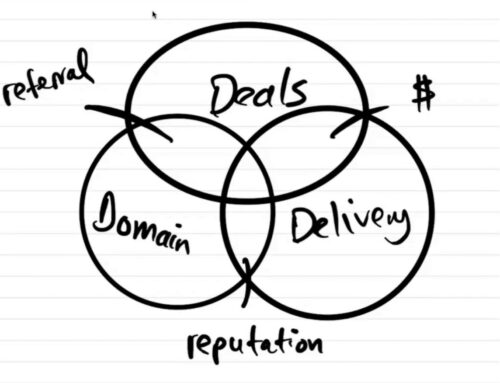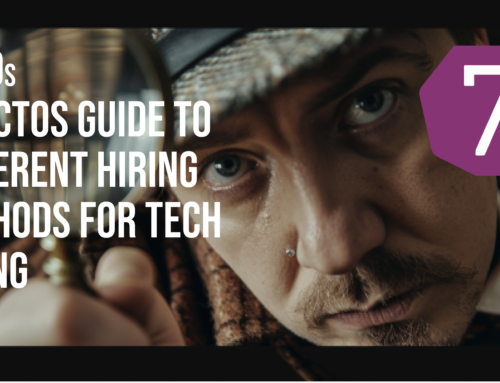Creating Clear and Powerful Intentions with Michelle Saul
The start of a new year is always a time for new resolutions – but our guest is here to tell us why creating clear and powerful intentions is far more effective. Michelle Saul is the founder and president of Possibilities Consulting and she was my first ever real coach.
Speaking of today’s episode of CTO Studio, Michelle is here to define intentions versus resolutions and why the role of the CTO within the C suite can be so hard sometimes. Join us and hear her insights on those matters and more on this edition of CTO Studio.
In this episode, you’ll hear: What makes a great leader?
- Do CMOs have a higher turnover rate than other C suite roles?
- What is the death knell in a company?
- Why it’s important to seek first to understand before being understood.
- When do people become defensive?
- And so much more!
My first question to Michelle is what does she first feel when she meets a CTO? She says the first thing she feels is overwhelming compassion! Most executives – especially CTOs – are stressed.
And CTOs in particular are stressed because they get blamed for so much and then they are forced to create deadlines. Basically they are forced into situations that seem impossible and then are blamed when they say no.
But is that the nature of a tech company – does the CTO get blamed because the company is within the tech field or is it the CTO’s personality? Yes and yes according to Michelle. To address the first piece: a lot of people (even within tech companies) don’t understand the complexity of changes they are requesting so the CTO themselves get frustrated because they are still blamed if it breaks or doesn’t work.
As far as the personality piece, typically because CTOs are technology people they are geeks who like facts and data and information. They love to fix things. But then their C suite team asks them to be more than data, information and facts.
Basically, CTOs are being asked to have a sales component; they are being asked to convince their executive team of why the CTO needs things done in a specific way (ie why they need to hire more people, why things need to be done in a certain way or in a certain timeframe, etc). But CTOs are not sales people.
If the C suite doesn’t understand what the CTO does then how is that CTO left feeling, in her experience? Does it feel like no one understands the pressure they are under?
Yes, that’s the key: not feeling understood. Coupled with that is the fact the tech side of a business costs money, while the sales side brings in money. So that sometimes leads to a CEO investing a lot of money into the sales and marketing, and not as much on tech because tech doesn’t directly generate cash the way sales and marketing does.
What advice does she have for a CTO who has realized they are not being heard by their C suite? There’s a transformation that has to happen in that scenario, it’s more than just a tweak or an adjustment. In fact, it’s a lifetime. It’s more than just looking at why aren’t you being effective and why are you doing and saying things that are causing you to be ineffective within the C suite or within your team? She helps people in this situation to look at their own personal obstacles.
Great leaders know themselves and are committed to examining their own lives. The challenge with the CTO is that often that person is the smartest person in the room, but they need to develop the emotional intelligence to have the empathy and communication skills to sell their ideas and to share their excitement and their feelings. Instead they often just show anger or frustration or disappointment – but great teams need more emotional components.
So they need to transform their thought processes and this happens over a lifetime. It isn’t something you fix once and for all, it happens over a lifetime.
Next on the CTO Studio, we also talk about saying tough things to people: it’s important to let people know you care, then you can say tough things to them. One of Michelle’s favorite quotes sums this up: people don’t care how much you know until they know how much you care. When they know you care the other person can hear what you are saying without making excuses.
We also discuss how to create intentions and why the mechanics of making those intentions will happen once you become crystal clear on your actual intention. One bit of advice she has to chunk things down: ask yourself what you want for your day. How do you want it to look? Don’t make a resolution for the entire year, just look at today and ask what you want to create and what do you want to let go of for today.
You can hear Michelle explain this in more detail on today’s episode, including the formula for a clear intention statement for your day as well as why looking for the flaws can sometimes get us in trouble. We wrap up with her personal stories about Tesla and how she and her husband turned a past regret into a new opportunity; join us to hear her tales on today’s CTO Studio.
Episode Resources:
Leadership and Self-Deception, by Arbinger Institute
Share This Story, Choose Your Platform!
Related Podcasts




